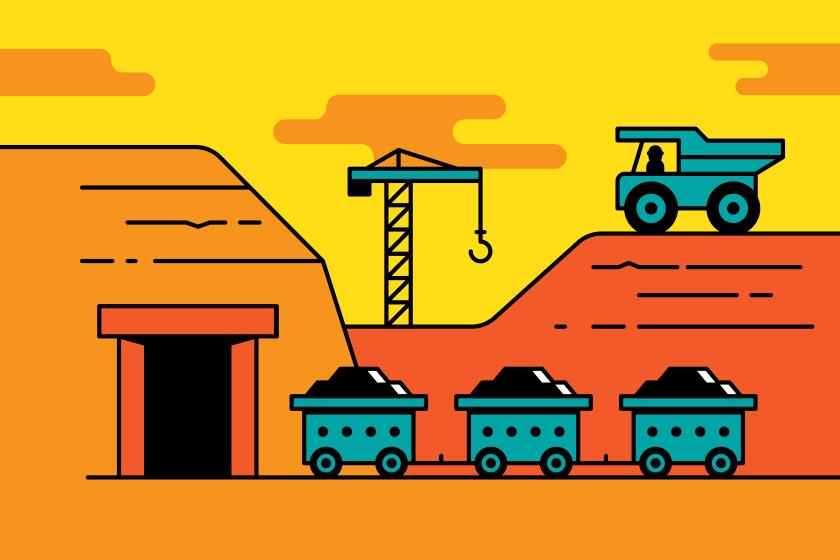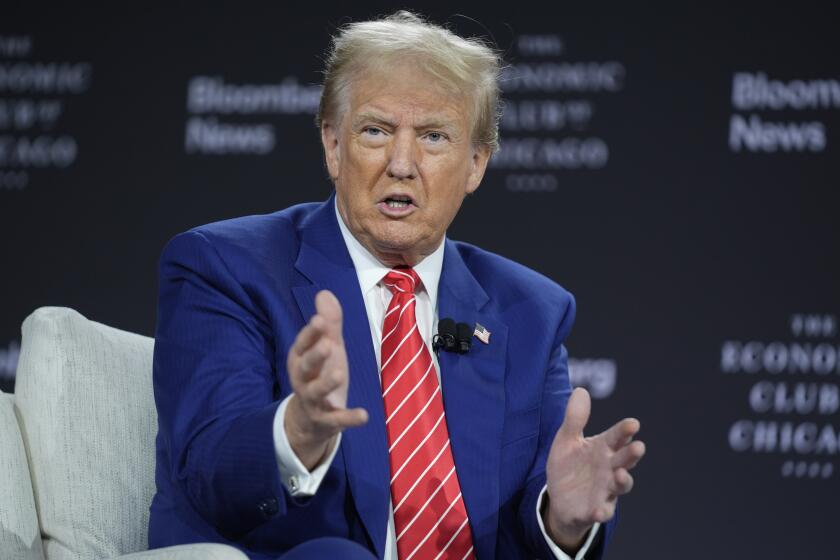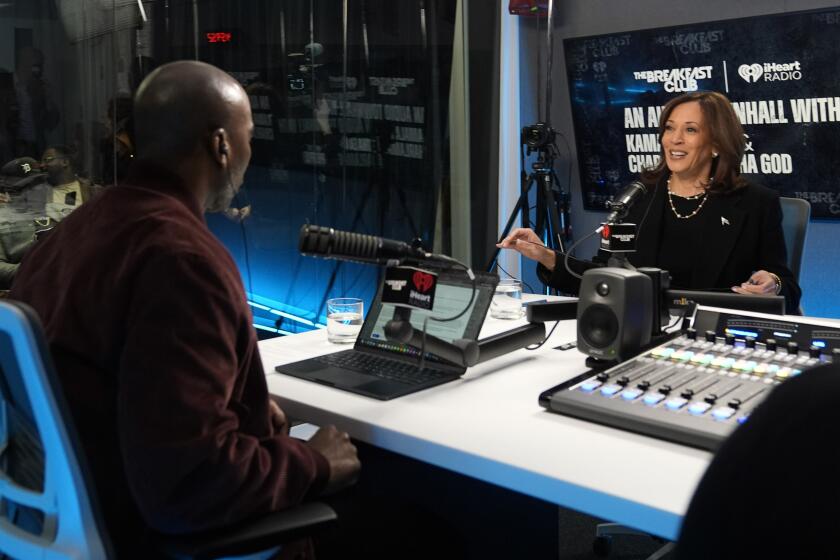From A to Z, U.S. Leaders Avoid <i> R</i> Word
Would a recession by any other name feel as bad?
Government leaders clearly hope that the answer is no: They are struggling mightily to avoid the dreaded R word, even as bleak economic news keeps piling up.
In a phrase only economists could love, Federal Reserve Board Chairman Alan Greenspan termed the slump “a meaningful downturn in aggregate output.” Translation: The economy is shrinking. A “lull” is the soothing image favored by Michael J. Boskin, chief White House economist. President Bush has called it a “slowdown.”
There’s no mystery to these benign word choices. No president wants to be identified with a recession, however complex its roots. Also, it’s not 100% certain that a recession is in progress, although many experts say it is.
White House officials “are going to call it the Hussein recession or the Fed recession,” predicted Lawrence Chimerine, a fellow with the Economic Strategy Institute, a Washington think tank. “No Administration likes to admit there’s a recession taking place on their watch.”
A recession is broadly defined as six months of a declining economy. In an odd rite of policy and tradition, the date of its arrival is decreed by a group of seven academics, who mull over things such as U.S. employment, income, industrial output and trade.
“They call a meeting when they feel like they can make a decision,” explained Donna Zerwitz, a spokeswoman for the private National Bureau of Economic Research in Cambridge, Mass., whose Business Cycle Dating Committee performs the weighty task. “There is nothing scheduled right now.”
Barring an official determination, the quest to find kind and gentle substitutes for the R word is likely to go on. Many Americans would find it unsettling for a high-level official to proclaim a recession at this early stage of a slump, Chimerine said; such a statement could further jeopardize the economy and stir the financial markets.
Greenspan’s cautious choice of words this week underlines another side to the dilemma. Declaring that the economy is in the tank would unleash public pressure for lower interest rates. And the Fed chief doesn’t want to lower rates too fast for fear of provoking inflation.
While none of that is a secret, those schooled in the arcane code-language of government economists were startled by his remarks.
“When I heard that yesterday, I said, ‘Oh, God, we’ve been waiting for this,’ ” said Irwin L. Kellner, chief economist at Manufacturers Hanover. “To hear Alan Greenspan say there is a meaningful downturn, tells me he thinks we’re in a recession.”
Other government officials have found even more creative ways to describe a recession. Alfred Kahn, the Carter Administration’s inflation fighter, got a presidential scolding for uttering the taboo term in public. So Kahn, in an effort to satisfy his boss, took to calling it a “banana.”
More to Read
Get the L.A. Times Politics newsletter
Deeply reported insights into legislation, politics and policy from Sacramento, Washington and beyond. In your inbox three times per week.
You may occasionally receive promotional content from the Los Angeles Times.










